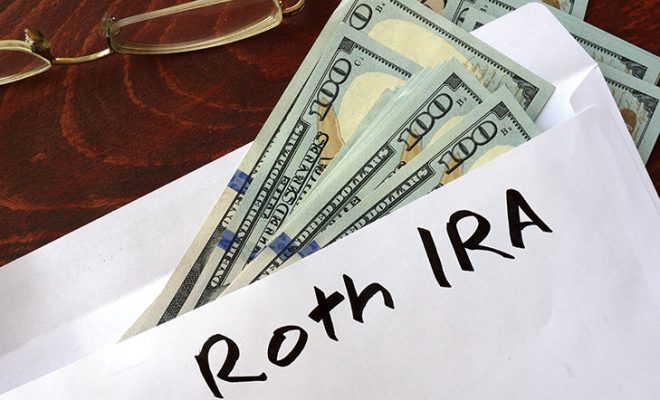Things You Must Know About Roth Conversions and Social Security Taxation

Individual Retirement Accounts (IRAs) are great tax-advantaged investment tools that enable people to earmark and channel funds into their retirement savings. While traditional IRAs allow tax-deferred savings, Roth IRAs offer tax-free income.
A traditional IRA enables individuals to direct pre-tax income towards investments that grow tax-deferred until they are withdrawn during retirement. A Roth IRA, on the other hand, allows qualified withdrawals on a tax-free basis provided certain pre-determined conditions are met. Any contributions you make to a Roth IRA are not tax-deductible but once you start making withdrawals, the money is tax-free.
For many people, it is quite difficult to decide whether to stick to a traditional IRA or switch to a Roth IRA. However, by understanding how a Roth conversion works and its implications on social security taxation, you can be better equipped to make this tough decision.
What is a Roth IRA conversion?
Essentially, a Roth IRA conversion is a taxable transfer of funds from a traditional IRA, Simplified Employee Pension (SEP), or SIMPLE IRA, to a Roth IRA. It enables you to move money from a pretax traditional IRA to a post-tax Roth IRA. This can help your after-tax money to grow and eventually become tax-free. A Roth conversion can be very valuable in helping you manage your taxable income in retirement.
Contributions to your Roth IRA are considered to be made with after-tax dollars. So, you don’t have to pay taxes on the distributions you receive in retirement. Moreover, you are not required to pay taxes on any earnings if you make a withdrawal after you’ve held your Roth IRA for a minimum of 5 years, and have reached at least 59.5 years of age.
Any American citizen with a traditional IRA is eligible to convert it into a Roth IRA. Earlier, there were numerous restrictions on Roth IRA conversion which could deter people from considering the shift. However, since the beginning of 2010, most of these restrictions have been eliminated. Now, income limits and tax filing status no longer apply to a Roth conversion.
Should you consider a Roth conversion?
You may find it advantageous to convert a traditional IRA into a Roth IRA if you expect your tax bracket to go up in retirement. In such a case, it makes more sense to pay taxes at the current, lower rate as compared to a higher rate once you have retired. If you have accumulated huge savings in your retirement accounts, it would make sense to convert at least a portion, if not all, of the funds into a Roth IRA.
Converting to a Roth IRA is also advisable if you don’t have much tax diversification in your account types, i.e., most of your wealth and assets are in tax-deferred accounts. A Roth conversion will allow you to manage your tax planning in retirement more efficiently as your assets won’t be taxable when withdrawn.
Important things you must know about Roth conversions
Since saving in a Roth IRA can make tax-free income a reality, a Roth IRA conversion is worth considering if you still own a traditional IRA account. However, before making this change, there are some things you must know:
-
- You can opt for full conversion or a partial conversion
When converting from a traditional IRA to a Roth IRA, you have the choice of either converting all your funds, or only a part of it. You can only be taxed on the amount that is converted and at the same rate as ordinary income. Partial conversion of funds into a Roth IRA can be a good idea if you want to avoid being put into a higher tax bracket.
-
- You are liable to owe taxes upon making a Roth conversion
If you have received any tax deductions while making your existing IRA contributions, you will be required to pay taxes once you convert to a Roth IRA. The exact amount can differ from individual to individual and can be checked via the Internal Revenue System (IRS) Form 8606. Depending upon your location, you may be required to pay separate state taxes too. It is also worth remembering that any distributions of converted funds within a five-year period following the conversion will be subject to a 10% penalty tax if you are under 59.5 years of age.
-
- Roth IRAs can help control Medicare costs
The premiums you pay towards Medicare Part B are based on your total taxable income in retirement. As such, these can be quite tricky. In some cases, if your income goes up by even a single dollar, you might be required to pay hundreds of extra dollars for your Medicare B premiums. You can easily safeguard yourself from such an eventuality by investing in a Roth IRA as it can provide you with totally tax-free income in retirement.
-
- A Roth conversion can benefit your heirs too
Unlike traditional IRAs, Roth IRAs do not have any minimum distribution requirements. If you don’t need to tap into your IRA funds during your entire lifetime, converting to a Roth IRA will allow your funds to grow in a tax shelter, undiminished by Required Minimum Distributions (RMDs). So, you can leave more for your heirs who can benefit further from tax-free withdrawals enabled by the respective account.
-
- You can’t undo a Roth conversion
A new rule in the Tax Cuts and Jobs Act of 2017 states that you are not allowed to undo a Roth conversion. So, once you convert, there’s no going back. If you are confused about converting, opting for partial conversion can be a good idea for you. You can divide your savings between a Roth IRA and a traditional IRA. This will give you better flexibility of funds while ensuring that you receive the best benefits of both types of IRAs.
To sum it up
When it comes to Roth IRAs, it makes a lot of sense to pay taxes on your retirement savings sooner rather than later. A Roth IRA needs to be funded with after-tax dollars but the qualified withdrawals are entirely tax-free. Since Roth IRAs are not subject to RMDs as well, they provide you with greater control over your taxable income after retirement too. For these benefits and many more, you should definitely consider a Roth conversion if you haven’t already.
For any further information on Roth conversions, feel free to contact the top Financial Advisor in your city.










